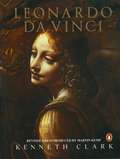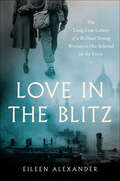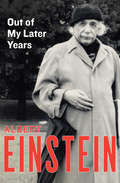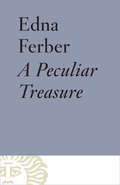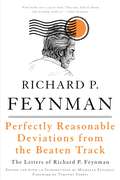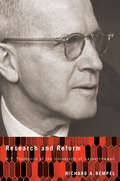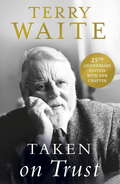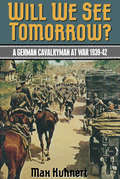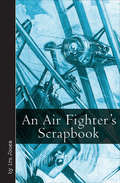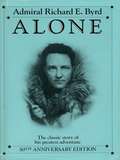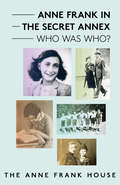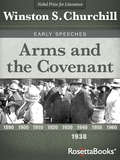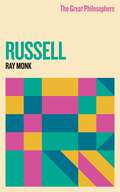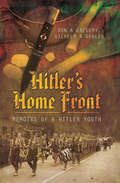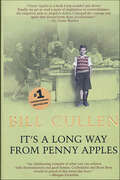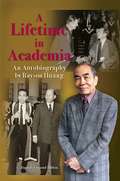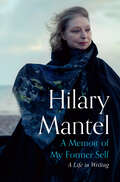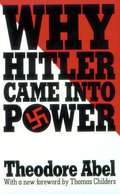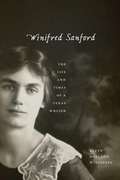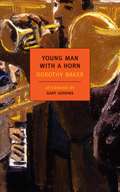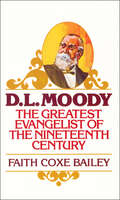- Table View
- List View
The Kingdom Of Swing
by Irving Kolodin Benny Goodmanthe book deals with the life of Benny Goodman up to the year 1939. Since he lived 37 years after this publishing, it is only partly the story of his life.
Leonardo Da Vinci
by Kenneth Clark Martin KempA personally compelling introduction to Leonardo's genius, a classic monograph of Leonardo's art and his development.
Love in the Blitz: The Long-Lost Letters of a Brilliant Young Woman to Her Beloved on the Front
by Eileen AlexanderOn July 17th 1939, Eileen Alexander, a bright young woman recently graduated from Girton College, Cambridge, begins a brilliant correspondence with fellow Cambridge student Gershon Ellenbogen that lasts five years and spans many hundreds of letters. But as Eileen and Gershon’s relationship flourishes from friendship and admiration into passion and love, the tensions between Germany, Russia, and the rest of Europe reach a crescendo. When war is declared, Gershon heads for Cairo and Eileen forgoes her studies to work in the Air Ministry.As cinematic as Atonement, written with the intimacy of the Neapolitan quartet, Love in the Blitz is an extraordinary glimpse of life in London during World War II and an illuminating portrait of an ordinary young woman trying to carve a place for herself in a time of uncertainty. As the Luftwaffe begins its bombardment of England, Eileen, like her fellow Britons, carries on while her loved ones are called up to fight, some never to return home.Written over the course of the conflict, Eileen’s letters provide a vivid and personal glimpse of this historic era. Yet throughout the turmoil and bloodshed, one thing remains constant: her beloved Gershon, who remains a source of strength and support, even after he, too, joins the fighting. Though his letters have been lost to time, the bolstering force of his love for Eileen is illuminated in her responses to him.Equal parts heartrending and heartwarming, Love in the Blitz is a timeless romance and a deeply personal story of life and resilience amid the violence and terror of war.
Out of My Later Years: The Scientist, Philosopher, and Man Portrayed Through His Own Words
by Albert EinsteinAn inspiring collection of essays, in which Albert Einstein addresses the topics that fascinated him as a scientist, philosopher, and humanitarian Divided by subject matter—&“Science,&” &“Convictions and Beliefs,&” &“Public Affairs,&” etc.—these essays consider everything from the need for a &“supranational&” governing body to control war in the atomic age to freedom in research and education to Jewish history and Zionism to explanations of the physics and scientific thought that brought Albert Einstein world recognition. Throughout, Einstein&’s clear, eloquent voice presents an idealist&’s vision and relays complex theories to the layperson. Einstein&’s essays share his philosophical beliefs, scientific reasoning, and hopes for a brighter future, and show how one of the greatest minds of all time fully engaged with the changing world around him. This authorized ebook features rare photos and never-before-seen documents from the Albert Einstein Archives at the Hebrew University of Jerusalem.
A Peculiar Treasure
by Edna FerberPulitzer Prize winner Edna Ferber's stunning first autobiography, in which she recounts her small-town Midwestern childhood and rise to literary fame, all amidst the backdrop of America around the turn of the 20th century.A modest girl growing up one of the only Jewish children in her Midwestern town, Edna Ferber started overcoming the odds at a young age. Pursuing work at the local newspaper as an innocent 17-year-old, she was assigned the night court shift, reporting on drugs and violence, and gradually finding her own voice in standing up to what she witnessed. As she continued to pursue writing, she recalls the various ways in which she found inspiration, leading her to publish her first books and later, So Big, which won a Pulitzer Prize and catapulted her to fame. Ferber's incredible experiences all occur during a time of pre-WWII rising anti-Semitism and the gaining power of Hitler in Europe, and the various historical and political tensions of the time color the fascinating events of her life.
Perfectly Reasonable Deviations From the Beaten Track: The Letters of Richard P. Feynman
by Richard P. FeynmanA Nobel Prize-winning physicist, a loving husband and father, an enthusiastic teacher, a surprisingly accomplished bongo player, and a genius of the highest caliber---Richard P. Feynman was all these and more. Perfectly Reasonable Deviations From the Beaten Track--collecting over forty years' worth of Feynman's letters--offers an unprecedented look at the writer and thinker whose scientific mind and lust for life made him a legend in his own time. Containing missives to and from such scientific luminaries as Victor Weisskopf, Stephen Wolfram, James Watson, and Edward Teller, as well as a remarkable selection of letters to and from fans, students, family, and people from around the world eager for Feynman's advice and counsel, Perfectly Reasonable Deviations From the Beaten Track not only illuminates the personal relationships that underwrote the key developments in modern science, but also forms the most intimate look at Feynman yet available. Feynman was a man many felt close to but few really knew, and this collection reveals the full wisdom and private passion of a personality that captivated everyone it touched. Perfectly Reasonable Deviations From the Beaten Track is an eloquent testimony to the virtue of approaching the world with an inquiring eye; it demonstrates the full extent of the Feynman legacy like never before. Edited and with additional commentary by his daughter Michelle, it's a must-read for Feynman fans everywhere, and for anyone seeking to better understand one of the towering figures--and defining personalities--of the twentieth century.
Research and Reform
by Richard A. RempelThe first biologist to establish the study of genetics in a Canadian university, W.P. Thompson was a passionate advocate of science education whose impact extended far beyond his home province of Saskatchewan. In Research and Reform, Richard Rempel brings to light the life, times, and legacy of a brilliant and influential geneticist. Born and raised in rural Ontario, Thompson's thirst for knowledge took him from a largely self-educated youth to undergraduate and graduate studies at the University of Toronto and Harvard, respectively, culminating in a successful career in the field of cytogenetics. The discoveries Thompson made working with wheat chromosomes spread across the country and brought him considerable renown within the scientific community. Research and Reform documents Thompson's revolutionary attempts to create a wheat hybrid resistant to fungal leaf rust - efforts supported by the Winnipeg Rust Laboratory, the National Research Council, and the Federal Department of Agriculture. Rempel also documents the sweeping curriculum reforms Thompson introduced to the University of Saskatchewan, first as dean of arts and sciences and later as president. Thompson's presidency demonstrated for the first time the depth of the constructive and cordial relationship that existed between Tommy Douglas's Cooperative Commonwealth Federation government and the university. Shedding light on Thompson's later years, Rempel describes how he became a key figure in the planning and establishment of Saskatchewan's 1962 Medicare legislation. An invaluable addition to the history of science and medicine in Canada, Research and Reform restores a Canadian scientist and educator to his rightful place in history.
Taken on Trust
by Terry WaiteThis autobiography describes the hours before and after Terry Waite was taken hostage in January 1987 in Beirut. Waite analyzes his thoughts and feelings immediately prior to captivity - what was the nature of his role as envoy for the Archbishop of Canterbury? What was his relationship with the Americans and Colonel Oliver North? The book looks at Waite from his upbringing in Styal, Cheshire, until after his release in November 1991, when he had become one of the best-known figures of his time. It is an account of his years in solitary confinement and of the inner strengths which enabled him to survive.
Will We See Tomorrow?: A German Cavalryman at War, 1939–1942
by Max KuhnertThis memoir of a Nazi cavalryman offers a rare glimpse at the frontlines of WWII—in Poland, France, and Russia—from the perspective of a German soldier. Throughout the Second World War, the German Army was regarded as the most organized and technologically advanced fighting force in the world. And yet, while much is written about its Luftwaffe and Panzer tanks, the German military was mostly horse-drawn. The memoir of German mounted cavalryman Max Kuhnert takes readers inside this vital yet often overlooked aspect of the conflict. Originally from Dresden, Kuhnert enlisted in the German Army in 1939, and was posted to a cavalry unit which would go on to provide mounted reconnaissance troops for infantry regiments. His account tells of mobilization, time spent in occupied Denmark, and the invasions of Poland, France, and Russia. He also recounts the retreat from Russia, as well as his return to Germany after being wounded
An Air Fighter's Scrapbook (Vintage Aviation Library)
by Ira JonesA classic memoir of the early days of aviation by a longtime Royal Air Force pilot, including his harrowing, exhilarating adventures in the Great War. Ira &“Taffy&” Jones was a well-known air fighter during the First World War, having scored about forty victories flying SE5 scouts in France with 74 Squadron. Familiar in flying circles, Jones recorded stories drawn from his own experiences during the war and wrote of the many personalities he had met or known by association, both during the war and in the postwar flying years. An Air Fighter&’s Scrapbook recreates the atmosphere of the days of the biplane, of wartime flying, of early peacetime adventures in the air, the development of civil aviation, and breathtaking record-beating flights—all evoking the sheer delight in flying that characterized those early years.
Alone: The Classic Polar Adventure
by Richard E. ByrdWhen Admiral Richard E. Byrd set out on his second Antarctic expedition in 1934, he was already an international hero for having piloted the first flights over the North and South Poles. His plan for this latest adventure was to spend six months alone near the bottom of the world, gathering weather data and indulging his desire "to taste peace and quiet long enough to know how good they really are." But early on things went terribly wrong. Isolated in the pervasive polar night with no hope of release until spring, Byrd began suffering inexplicable symptoms of mental and physical illness. By the time he discovered that carbon monoxide from a defective stovepipe was poisoning him, Byrd was already engaged in a monumental struggle to save his life and preserve his sanity. When Alone was first published in 1938, it became an enormous bestseller. This edition keeps alive Byrd's unforgettable narrative for new generations of readers.
Anne Frank in the Secret Annex: Who Was Who?
by The Anne Frank HouseAn extraordinary story of Anne Frank and the Secret Annex For two years during the Second World War, young, Jewish Anne Frank lived in hiding from the Nazis. Everything she experienced, thought, and felt, she confided in her diary. She was just as frank in her descriptions of the seven other people in the Annex and of the five helpers who endangered their own lives to look after them. Years later, Anne Frank's diary became world famous. The Secret Annex was so well set up that the hiders survived there for over two years. Who were these people, how did they meet, and what happened to them? This book shows the background and organization of the Annex and the personal stories of all involved, as well as their relationships and their fates. It also offers many never-before-published photographs. The result is an extraordinary group portrait that stays with the reader long after the last page is turned.
Arms and the Covenant (Winston S. Churchill Early Speeches)
by Winston S. ChurchillThis inspiring collection of campaign speeches from the British prime minister bring his oratory brilliance and powers of persuasion to life. Legendary politician and military strategist Sir Winston Churchill was a master not only of the battlefield, but of the page and the podium. Over the course of forty books and countless speeches, broadcasts, news items and more, he addressed a country at war and at peace, thrilling with victory but uneasy with its shifting role on the global stage. In 1953, he was awarded the Nobel Prize for Literature for &“his mastery of historical and biographical description as well as for brilliant oratory in defending exalted human values.&” During his lifetime, he enthralled readers and brought crowds roaring to their feet; in the years since his death, his masterful writing has inspired generations of eager history buffs. Well before Britain entered World War II, Winston Churchill warned his government about the growing Nazi threat, even as many European leaders were still urging caution and diplomacy. In this collection of forty-one speeches from 1928 to 1938, the great politician&’s prescience and political skill—vital to Britain&’s role as the first country to stand against Hitler—are clearly on display. This collection, which includes the famous &“Disarmament Fable&” speech, presents a fascinating look at Churchill&’s campaign to mobilize Britian against the rising Nazi threat, and showcases his versatility and genius as one of the best orators of the twentieth century.
The Great Philosophers: Russell
by Ray MonkBertrand Russell 1872-1970Bertrand Russell discovered mathematics at the age of eleven. It was, he recalled, a transporting experience: 'as dazzling as first love.'From that moment on, he would pursue his passion with undying devotion and all but erotic fervour. Mathematics might succeed, he felt, where philosophy had failed, reducing thought to its purest form, and freeing knowledge from doubt and contradiction.And so, for a time, it seemed. Russell's mathematical investigations effortlessly resolved at a stroke some of philosophy's most intractable problems. Yet if mathematics could be a liberating mistress, she was an unreliable one...Opening up the work of one of our age's undisputed giants, Ray Monk's exhilaratingly clear, readable guide tells a compelling human tale too: a moving story of love and loss, of ecstatic triumph and deep disillusion.
The Great Philosophers: Russell (GREAT PHILOSOPHERS)
by Ray MonkBertrand Russell 1872-1970Bertrand Russell discovered mathematics at the age of eleven. It was, he recalled, a transporting experience: 'as dazzling as first love.'From that moment on, he would pursue his passion with undying devotion and all but erotic fervour. Mathematics might succeed, he felt, where philosophy had failed, reducing thought to its purest form, and freeing knowledge from doubt and contradiction.And so, for a time, it seemed. Russell's mathematical investigations effortlessly resolved at a stroke some of philosophy's most intractable problems. Yet if mathematics could be a liberating mistress, she was an unreliable one...Opening up the work of one of our age's undisputed giants, Ray Monk's exhilaratingly clear, readable guide tells a compelling human tale too: a moving story of love and loss, of ecstatic triumph and deep disillusion.
Hitler's Home Front: Memoirs of a Hitler Youth
by Don A Gregory Wilhelm R GehlenA &“candid and revealing memoir shows a normal boy and a family at war and in its aftermath, determined to do what it took to survive . . . fascinating&” (The Great War). When Adolf Hitler and the Nazi Party came into power in 1933, he promised the downtrodden, demoralized, and economically broken people of Germany a new beginning and a strong future. Millions flocked to his message, including a corps of young people called the Hitlerjugend—the Hitler Youth. By 1942 Hitler had transformed Germany into a juggernaut of war that swept over Europe and threatened to conquer the world. It was in that year that a nine-year-old Wilhelm Reinhard Gehlen, took the &‘Jungvolk&’ oath, vowing to give his life for Hitler. This is the story of Wilhelm Gehlen&’s childhood in Nazi Germany during World War II and the awful circumstances which he and his friends and family had to endure during and following the war. Including a handful of recipes and descriptions of the strange and sometimes disgusting food that nevertheless kept people alive, this book sheds light on the truly awful conditions and the twisted, mistaken devotion held by members of the Hitler Youth—that it was their duty to do everything possible to save the Thousand Year Reich.
It's a Long Way from Penny Apples
by Bill CullenTis better to be born lucky than rich....There are many ways to confront tragedy and hard times. Angela's Ashes, Frank McCourt's tragic--and ultimately uplifting--tale of how one man overcame adversity and found happiness in the New World is a compelling story that has touched thousands of readers.It's a Long Way from Penny Apples is another view of the Irish experience, another man's journey out of the grinding poverty that held an entire generation of Irishmen in its thrall.Poverty and its ills can rend a family apart and ruin countless lives, leaving individuals on their own to find their way, if they can, out of that despair and on to a new life. But not every family gives in to defeat. Sometimes the choice is to not leave anyone behind... and out of that love, a family can come together, using all their talents to bring all of their loved ones to a better place.Bill Cullen was lucky enough to have one such family. Born and bred in the rough inner city slums of Summerhill in Dublin, Bill was one of fourteen children. Selling on the streets from the age of six, be it fruit, flowers, newspapers, Christmas decorations, football colors, or programs, was a means of putting food on the table for Bill and his family. He finished school at thirteen to go on the street fulltime. In 1956 Bill got a job as a messenger boy for a pound a week at Waldens Ford Dealer in Dublin. Through hard work and unrelenting determination, Bill was appointed director general of the company, in 1965. Bill went on to set up the Firlane Motor Company which became the biggest Ford dealership in Ireland. In 1986 he took over the troubled Renault car distribution franchise from Waterford Crystal. His turnaround of that company into what is now the Glencullen Group is a business success story-the group now has an annual turnover of 250 million.Bill Cullen's story is an account of incredible poverty and deprivation in the Dublin slums. It highlights the frustration of a father and mother feeling their relationship crumble as they fight to give their children a better life. It's a story of courage, joy, and happiness--of how a mother gave inspiration and values to her children, saying to them, "The best thing I can give you is the independence to stand on your own feet."It's a Long Way from Penny Apples is nothing less than a modern-day Horatio Alger story, told with humor and love; a heartwarming tale of redemption and overcoming adversity by one of the most famous self-made men in IrelandAt the Publisher's request, this title is being sold without Digital Rights Management Software (DRM) applied.
The Life of Sir Hersch Lauterpacht
by Elihu LauterpachtHersch Lauterpacht, of whom this book is an intimate biography by his son, Elihu, was one of the most prolific and influential international lawyers of the first half of the twentieth century. Having come to England from Austria in the early 1920s, he first researched and taught at the London School of Economics before moving to Cambridge in 1937 to become Whewell Professor of International Law. He did valuable work to enhance relations with the United States during the Second World War, and was active after the war in the prosecution of William Joyce and the major Nazi war criminals. For ten years he was also involved in various significant items of professional work and in 1955 he was elected a judge of the International Court of Justice. The book contains many extracts from his correspondence, the interest of which will extend to lawyers, historians of the period and beyond.
A Lifetime in Academia
by Rayson HuangRayson Huang began his studies at the University of Hong Kong in 1938. Thirty-four years later, in 1972, he became the University's first Chinese Vice-Chancellor and served in that position until 1986. He sat on the Legislative Council of Hong Kong and on the Drafting Committee that formulated China's Basic Law for Hong Kong after its return to China in 1997. In this lively and frank autobiography, Huang reflects on his diverse university career of almost half a century - in Hong Kong, China, Britain, the United States, Singapore and Malaysia - and on his experiences during World War II, when he moved, as a refugee, into Free China to study and teach. This expanded second edition includes substantial additional material on his childhood, his experiences in occupied Hong Kong, and his activities as vice-chancellor.
A Memoir of My Former Self: A Life in Writing
by Hilary MantelTHE FINAL BOOK FROM ONE OF OUR GREATEST WRITERS In addition to her celebrated career as a novelist, Hilary Mantel contributed for years to newspapers and journals, unspooling stories from her own life and illuminating the world as she found it. “Ink is a generative fluid,” she explains. “If you don’t mean your words to breed consequences, don’t write at all.” A Memoir of My Former Self collects the finest of this writing over four decades.Her subjects are wide-ranging, sharply observed, and beautifully rendered. She discusses nationalism and her own sense of belonging; our dream life popping into our conscious life; the mythic legacy of Princess Diana; the many themes that feed into her novels—revolutionary France, psychics, Tudor England; and other novelists, from Jane Austen to V.S. Naipaul. She writes about her father and the man who replaced him; she writes fiercely and heartbreakingly about the battles with her health that she endured as a young woman, and the stifling years she found herself living in Saudi Arabia. Here, too, is her legendary essay “Royal Bodies,” on our endless fascination with the current royal family.From her unusual childhood to her all-consuming interest in Thomas Cromwell that grew into the Wolf Hall trilogy, A Memoir of My Former Self reveals the shape of Hilary Mantel’s life in her own luminous words, through “messages from people I used to be.” Filled with her singular wit and wisdom, it is essential reading from one of our greatest writers.
Why Hitler Came Into Power
by Theodore Abel Thomas Childers<P><P>In 1934 Theodore Abel went to Germany and offered a prize, under the auspices of Columbia University, for autobiographies of members of the National Socialist movement. The six hundred essays he received constitute the single best source on grassroots opinion within the Nazi Party, and they form the empirical foundation for Abel's fascinating yet curiously neglected 1938 book. Although a number of scholars have drawn on these reports, Abel's own treatment has never been surpassed. Of particular value is his presentation of the life histories of a worker, a soldier, an anti-Semite, a middle-class youth, a farmer, and a bank clerk, all of whom explain in their own words why they joined the NSDAP. In the vast literature on National Socialism, no more useful or revealing testimony exists. <P><P> In a new Foreword, Thomas Childers discusses how the past half-century of research and writing on Nazi Germany has upheld Abel's original insights into the broad appeal of the National Socialist movement, thereby reaffirming this work's enduring value for students of the topic.
Winifred Sanford: The Life and Times of a Texas Writer
by Betty Holland WiesepapeWinifred Sanford is generally regarded by critics as one of the best and most important early twentieth-century Texas women writers, despite publishing only a handful of short stories before slipping into relative obscurity. First championed by her mentor, H. L. Mencken, and published in his magazine, The American Mercury, many of Sanford's stories were set during the Texas oil boom of the 1920s and 1930s and offer a unique perspective on life in the boomtowns during that period. Four of her stories were listed in The Best American Short Stories of 1926. Questioning the sudden end to Sanford's writing career, Wiesepape, a leading literary historian of Texas women writers, delved into the author's previously unexamined private papers and emerged with an insightful and revealing study that sheds light on both Sanford's abbreviated career and the domestic lives of women at the time. The first in-depth account of Sanford's life and work, Wiesepape's biography discusses Sanford's fiction through the sociohistorical contexts that shaped and inspired it. In addition, Wiesepape has included two previously unpublished stories as well as eighteen previously unpublished letters to Sanford from Mencken. Winifred Sanford is an illuminating biography of one of the state's unsung literary jewels and an important and much-needed addition to the often overlooked field of Texas women's writing.
Young Man with a Horn
by Gary Giddins Dorothy BakerRick Martin loved music and the music loved him. He could pick up a tune so quickly that it didn't matter to the Cotton Club boss that he was underage, or to the guys in the band that he was just a white kid. He started out in the slums of LA with nothing, and he ended up on top of the game in the speakeasies and nightclubs of New York. But while talent and drive are all you need to make it in music, they aren't enough to make it through a life. Dorothy Baker's Young Man with a Horn is widely regarded as the first jazz novel, and it pulses with the music that defined an era. Baker took her inspiration from the artistry--though not the life--of legendary horn player Bix Beiderbecke, and the novel went on to be adapted into a successful movie starring Kirk Douglas, Lauren Bacall, and Doris Day.
D. L. Moody: The Greatest Evangelist of the Nineteenth Century (Golden Oldies)
by Faith Coxe BaileyD.L. Moody's reaction was quick and to the point. "No! A thousand times no! I have no intentions of standing off here in New York City and approving something I know so little about. But I'll think it over, Emeline. Then one of these days, I'll come out to Chicago and we can talk some more about it."Moody's initial reaction to that "something" was to change through God's leading. That "something" is now the world-renowned Moody Bible Institute, which trains hundreds of men and women each year to understand and use the Scriptures.D.L. Moody dared to take up a challenge and see what God could do with a life totally committed to Him. Here is the story of the greatest American evangelist of the 1800s and the founder of the Moody Bible Institute.

